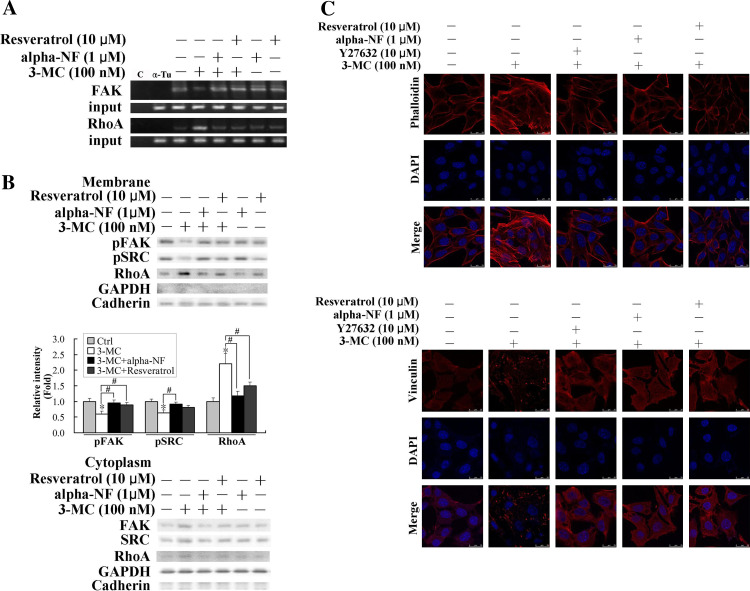Fig. 7.
Restoration of 3-methylcholanthrene (3MC)-mediated alteration in properties of human umbilical vascular endothelial cells (HUVECs) by the RhoA inhibitor and AhR antagonists. Elimination of 3MC-mediated alteration in focal adhesion kinase (FAK)/RhoA by aryl-hydrocarbon receptor (AhR) antagonists including resveratrol and alpha-NF in ChIP assay (a) and western blot analysis of cell fractionation (b). In a, cells were with similar treatments as Fig. 6a, except that some samples were pretreated with AhR antagonists, alpha-NF and resveratrol, for 1 h prior to 3MC administration for 1 h. Distilled water (c) and anti-α-tubulin (α-Tu) were respectively used as negative controls for the PCR and the ChIP assays. In b, cells with the indicated treatment were partitioned into cytosol and membrane fractions, both of which were probed with anti-FAK, anti-SRC, and anti-RhoA antibodies to assess their activity. Bar charts in the lower panel show the band intensity of pFAK, pSRC, and RhoA with additional 100 nM 3MC treatment with respect to that of each individual pretreatment and values represent the mean ± SD. *Significantly different (P < 0.05 vs the control), #significantly different (P < 0.05 vs 3MC alone). b Reversal of 3MC-mediated formation of stress fibers and the focal adhesion complex by Y27632 and AhR antagonists, alpha-NF and resveratrol, in HUVECs. Cells grown on coverslips were pretreated with 10 μM of Y27632 or resveratrol, or 1 μM of alpha-NF for 1 h prior to 3MC challenge for 1 h. The methods for staining the formation of the stress fiber and focal adhesion complexes are described in “Materials and methods”. Magnification ×630

